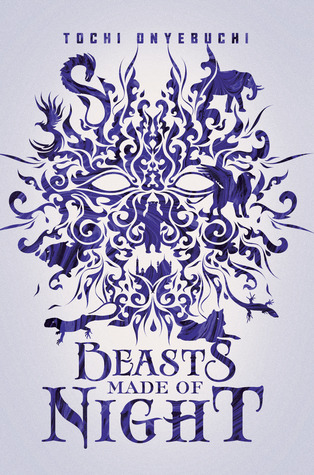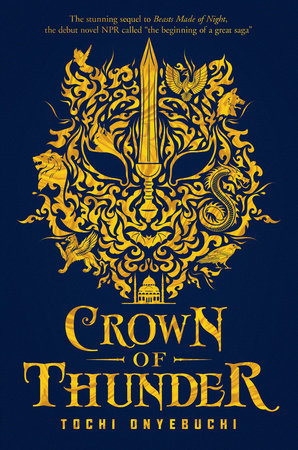#tochi onyebuchi
By Tochi Onyebuchi

I was asked recently on a panel what my thoughts were regarding the idea of a black Superman. There was a brief flutter of confusion on the panel, as I and another panelist wondered if some bit of casting news swept us by, but we soon realized the question was more theoretical than anything else. Questions about race and casting and storytelling generally are.
If I recall correctly, my answer was a bit of a deflection. I’d asked the questioner and the audience to, instead of engaging with a non-white Superman, ask themselves why Superman had been made white to begin with. This all-powerful demi-god, who could leap tall buildings in a single bound and who possessed untold amounts of strength, why, if he could already do so many things, was he also made white?
Increasing diversity in storytelling often comes with the built-in assumption that it is writers of color or disabled writers or non-binary writers who are doing the work. These people telling their own stories. The idea is that, the more these stories make it into the marketplace, the more a reader’s eyes will be opened to human possibility, the more likely they are, when they see a person of color or a disabled writer or a non-binary writer, to act with humaneness, rather than hatred. A story from a black author about a black boy makes its way into the hands of a young white reader and, suddenly, the pathway to bigotry is blocked by the empathetic undertaking that is the reading of a book.
But this is supposed to be a group project.
For me, sometimes what increasing diversity in storytelling entails is simply imagining ourselves outside of what we usually see. This can mean black superheroes and female corporate moguls, but it can’t be simple race- or gender-swapping. If the character is not a heterosexual, cis-gendered, white male, let’s make sure they are a fully realized character whose non-whiteness, for instance, isn’t just a splash of paint from an errant paintbrush. When I think back to that question about Superman, I find myself wishing from time to time that I’d answered along these lines, that I’d challenged the audience to imagine what it would look like in 2018 for a black man in America to be able to deflect bullets.
As powerful and as necessary as #ownvoices stories are, I can’t quite let white authors off the hook. In my estimation, it is not enough for them to sit back while the rest of us launch ourselves forward, telling stories that should have already been told, making up for lost time. I think white writers, male writers, should be called upon to interrogate their privilege, and to do so publicly and to do it in their storytelling. For so long, our heroes have looked a particular color. They should ask why, and they should ask it loudly.
Which brings me back to Superman. In many ways, this undocumented immigrant is the embodiment of white, male privilege. No mountain can stop him from getting where he needs to go. People around him are mosquitoes he can flick away with a finger. And, as Clark Kent, he wears glasses he doesn’t even truly need, a fashion accessory more than a health necessity. Of all the forms this alien could have chosen, he chose white. And I think all of us should be asking why.

I wrote Beasts Made of NightandCrown of Thunder not only to imagine a kid the same color as me saving the world, but also to imagine him fighting the awesome anime battles I watched as a teen and being the object of someone’s affection. I wanted to see a black boy fight monsters and be flirted with.
I talk at length about what it can mean, in a cosmic sense, having a hero of color in a world drawn from a non-Western mythos; the implications for diversity; my hopes with my readership. But lost in all of that is this selfish desire I’d had at the very beginning: I’d written Taj’s story for myself as much as for anyone else. Taj wasn’t just a black protagonist. He had my insecurities and my youthful bravado and my halting attempts at caring for my younger siblings. An undercurrent to a lot of questions I get is why did you make Taj black? which is a funny way of saying why did I make Taj me?
Because skin is everything that comes with it. Color carries the context of lived experience.
I don’t ascribe to any “color-blindness” that isn’t diagnosed by a doctor. Someone may insist that it shouldn’t matter what color our heroes are, but I disagree. It does matter. Because skin color has context. It informs our symbols, such that bullets bouncing off the chest of a black man make an entirely different sound than they do bouncing off the chest of a white man, even if the difference is pitched at a frequency only some of us can hear.

Tochi Onyebuchi’s fiction has appeared Asimov’s, Obsidian, and Omenana and is forthcoming from Tor.com, Harper Collins, and Razorbill. His non-fiction has appeared in Nowhere Magazine, the Oxford University Press blog, Tor.com, and the Harvard Journal of African American Public Policy, among other places. His Nommo Award-winning debut young adult novel, Beasts Made of Night, was published by Razorbill in Oct. 2017. Its sequel, Crown of Thunder, was released in Oct. 2018.
His books are available for purchase.
